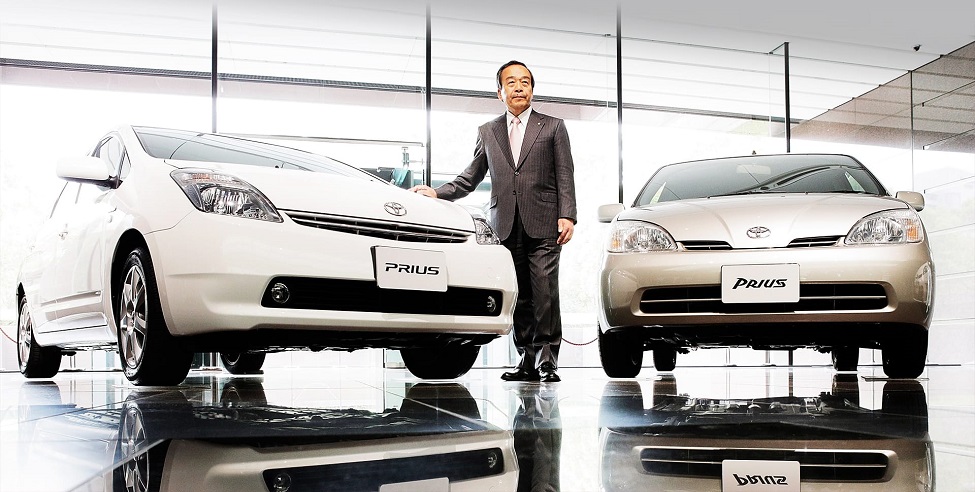 Toyota Prius Prime Plug-In Hybrid Electric Car
Toyota Prius Prime Plug-In Hybrid Electric Car

 |
 |
 |
About the Toyota Prius Prime Plug-In Hybrid Electric Car
View the brochure for the 2020 Prius Prime PHEV here
Prius Prime’s efficiency improves with every stop. Prius Prime gains efficiency even while you're stopping. From the moment you release the accelerator, regenerative braking activates and intensifies with greater brake force. This innovative technology helps recover some of the energy used while driving and then stores it in Prime’s battery, where it can then be used to extend your EV Mode driving range. Maximize Prius Prime’s full potential. Extend your range with hassle- free charging that requires no special equipment at home, just the included easy-to-use cable and a standard household outlet. Initially, Prime starts out and runs on electricity for the duration of the battery’s charge, unless you opt out of EV Mode—giving you a smooth and responsive drive that exceeds expectations. Evolution of the Prius Exhibited at the 31st Tokyo Motor Show Prius concept car It was in 1993, when in-house discussions over a "vehicle for the 21st century" intensified, that the development that led to the Prius got under way. In that year, the G21 Project was launched as a means to promote technological development, and, with Project General Manager Takeshi Uchiyamada at the center, efforts began toward finding ways to achieve a groundbreaking improvement in fuel efficiency that would light the way in the 21st century. 1997-2003 First-generation Prius The first-generation Prius was launched in October 1997 as the world's first mass-produced hybrid passenger vehicle. With a body compact enough to be registered with a 5-series number plate, the first-generation Prius was a stockier sedan than the current generation. At launch, the first-generation Prius had a fuel efficiency rating of 28.0 km/L in Japanese 10-15 test cycle, and came with the tagline: "Just in time for the 21st century." 2003-2009 Second-generation Prius The Prius was completely redesigned for the first time in 2003. The new model was equipped with the Toyota Hybrid System II―an evolution of the previous THS―which improved its 10-15 test cycle fuel efficiency rating to 35.5 km/L, thereby cementing the image of the Prius as a fuel-efficient vehicle. 2009-2015 Third-generation Prius The third-generation Prius featured a slightly larger body than previous models, and the THS engine was increased in size from 1.5 liters to 1.8 liters. While maintaining the same basic "triangle silhouette" as the second-generation Prius, the hood, headlights, and side view of the new model possessed greater modulation. The third-generation Prius achieved what was then the world's leading 10-15 test cycle fuel efficiency rating of 38.0 km/L. 2015-Present Fourth-generation Prius There were no major design changes from the second to the third-generation Prius. However, the fourth-generation Prius, while inheriting the "triangle silhouette" design, now featured a more aggressive appearance with a lower center of gravity. The new model combined an outstanding fuel efficiency rating of 40.8 km/L in Japanese JC08 test cycle with superb performance in a dynamic redesign. |
